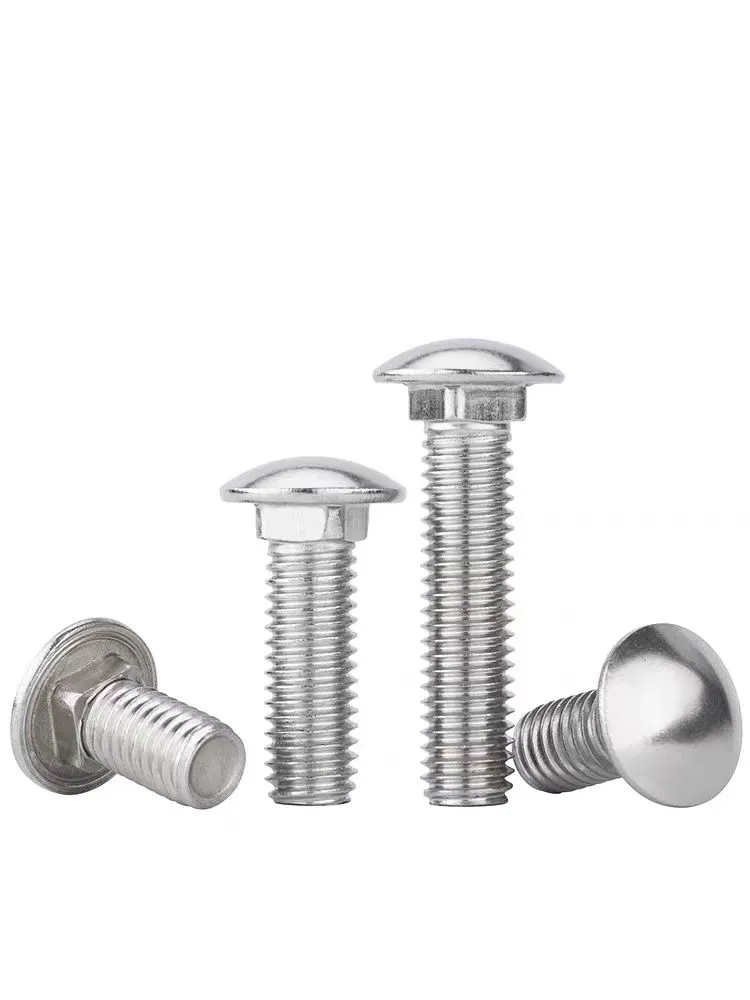

8mm stud bolt
Dec . 11, 2024 12:25 Back to list
8mm stud bolt
Understanding 8mm Stud Bolts Characteristics and Applications
Stud bolts are essential components in various engineering and construction applications, providing a reliable means of fastening two objects together. Among the many types available, 8mm stud bolts are particularly popular due to their versatility and effectiveness in a wide range of scenarios. This article explores the characteristics, manufacturing processes, and typical applications of 8mm stud bolts, shedding light on their importance in industrial settings.
What is a Stud Bolt?
A stud bolt is a mechanical fastener that resembles a cylinder with threads on both ends. Unlike a traditional bolt, which features a head, a stud bolt is fully threaded, allowing it to be inserted into a tapped hole or used with nuts at both ends. The absence of a head allows for more flexibility in tight spaces and provides the capability to create a clamping force between two parts effectively.
Characteristics of 8mm Stud Bolts
The designation 8mm refers to the diameter of the stud bolt. Here are some key characteristics of 8mm stud bolts
1. Material and Strength Stud bolts are commonly made from various materials, including stainless steel, carbon steel, and alloy steel. The choice of material significantly affects the strength, durability, and corrosion resistance of the stud bolt. For applications subjected to harsh conditions, stainless steel is often preferred due to its resistance to rust and corrosion.
2. Thread Specifications Stud bolts come with different thread specifications, such as coarse, fine, or special threads. For 8mm stud bolts, the most common thread pitch is 1.25mm (coarse) or finer options depending on the application requirements.
3. Length Options The length of 8mm stud bolts can vary widely, allowing engineers and designers to select the appropriate size for their specific assembly needs. Custom lengths can also be produced to meet unique project requirements.
4. Standard Compliance Many manufacturers produce stud bolts that comply with international standards, such as ASTM, ISO, and DIN. Compliance ensures that the product meets necessary quality and safety requirements, providing peace of mind to users.
Manufacturing Process
The manufacturing process of stud bolts typically involves the following stages
1. Material Selection The choice of raw material is crucial and depends on the desired mechanical properties and environmental considerations.
8mm stud bolt

2. Forging or Machining Depending on the design and specifications, stud bolts may be produced through forging or machining. Forging typically enhances the mechanical properties by refining the grain structure.
3. Threading The threading process can be accomplished through various methods, including cutting, rolling, or chasing, depending on precision requirements and production volume.
4. Heat Treatment For certain applications, heat treatment may be applied to enhance hardness, tensile strength, and ductility.
5. Finishing Finally, finishing processes such as coating or plating may be applied to improve corrosion resistance and aesthetic appeal.
Applications of 8mm Stud Bolts
8mm stud bolts find utility across numerous industries due to their adaptability. Some common applications include
1. Automotive Industry In cars and trucks, stud bolts are often employed to secure components like engine parts, transmissions, and exhaust systems. Their reliability in high-stress environments makes them a preferred choice.
2. Construction In construction, 8mm stud bolts are used to fasten structural elements such as beams, columns, and pre-cast concrete units. They provide secure connections that help maintain structural integrity.
3. Mechanical Engineering In machines and equipment, stud bolts are crucial for assembling parts and ensuring proper load distribution. They are often used in pumps, compressors, and hydraulic systems.
4. Pipelines and Vessels For pressure vessels and piping systems, 8mm stud bolts are used to bolt flanges and connect various sections, ensuring leak-proof assemblies that can withstand high pressures.
Conclusion
In summary, 8mm stud bolts are a vital component in many industries, providing reliable fastening solutions across a broad array of applications. With their robust design, variety of materials, and capability to meet rigorous standards, they enable engineers and manufacturers to create stable and safe assemblies. Understanding the characteristics and manufacturing processes of 8mm stud bolts is essential for ensuring the optimal selection and usage in any project.
Latest news
-
Hot Dip Galvanized Bolts-Hebei Longze|Corrosion Resistance&High Strength
NewsJul.30,2025
-
High-Strength Hot-Dip Galvanized Bolts-Hebei Longze|Corrosion Resistance&High Strength
NewsJul.30,2025
-
Hot Dip Galvanized Bolts-Hebei Longze|Corrosion Resistance&High Strength
NewsJul.30,2025
-
Hot Dip Galvanized Bolts - Hebei Longze | Corrosion Resistance, High Strength
NewsJul.30,2025
-
High-Strength Hot Dip Galvanized Bolts-Hebei Longze|Corrosion Resistance, Grade 8.8
NewsJul.30,2025
-
Hot Dip Galvanized Bolts-Hebei Longze|Corrosion Resistance,High Strength
NewsJul.29,2025

